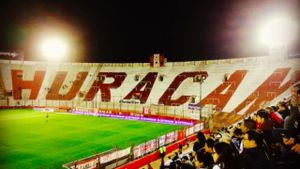Friedrich Merz, the Union's chancellor candidate, cast his vote on election day in his hometown of Arnsberg, located in the Hochsauerlandkreis, where he previously garnered 40.4% of the votes in the 2021 Bundestag elections. The CDU, under his leadership, has consistently aimed to assert its political presence and is optimistic about its standing, as reflected by early polling data.
His campaign slogan, "More Sauerland for Germany," has found its way onto numerous election posters, vividly displaying Merz dressed in his signature blue jacket, spotted tie, and welcoming smile. This slogan has transformed from mere campaign rhetoric to become part of the national dialogue surrounding his candidacy
Interestingly, the concept of "the Sauerland" is somewhat complicated. The western part of this region, stretching between Hagen and Siegen, serves more as a suburban area of the Ruhr region, once thriving with metal industry and now intertwined with the socio-economic tides of the past. Historically, political allegiances have ebbed and flowed, particularly during the Weimar Republic, where left-leaning parties like the SPD and KPD had considerable influence.
Meanwhile, the eastern side of the Sauerland, home to Merz and characterized by unique geographical features, including picturesque small towns and stunning scenery, boasts the Hochsauerlandkreis. This area is known for its successful mid-sized industries, dubbed "Hidden Champions," like Trilux, which considerably contributes to the local economy.
The Sauerland is also known for its unique cultural elements. Residents take pride in their regional dishes, such as Pumpernickel—a dark, slightly sweet whole-grain bread with historical significance during sieges when it served as sustenance for long-besieged towns. Merz has intensively drawn on these local traditions during his campaign, which has often sparked nostalgia among locals.
During the voting process, Friedrich Merz visited the polling station set up at the local shooting hall located in Niedereimer, reinforcing his ties to the area. Observers note how his upbringing, during which the Catholic faith and community events like shooting festivals played pivotal roles, has shaped his political persona.
Despite his historical roots and local support, Merz's political career has not been without challenges. Hailing from Arnsberg, the same town where he maintains his residence today, he is visibly connected to his constituents, and yet, responses to his candidacy have been mixed. Critics often associate his conservative beliefs with resistance to change, especially concerning modern issues such as climate change.
Arguably, the shift from traditional industries and the pressures of climate change have become pressing topics as Merz placed greater emphasis on the slogan "More Sauerland for Germany." Right as vote counters tallied up results, he faced questions about how he intends to tackle the distinct challenges, particularly with the Sauerland's once-thriving woods now appearing decrepit due to climate-related issues.
The election day buildup included various other candidates making their votes. While Merz turned out to his local voting booth, the current Chancellor Olaf Scholz was spotted jogging to his polling station in Potsdam, highlighting the contrasting emblematic styles between the two leaders.
Other candidates, including Robert Habeck of the Greens and Alice Weidel of the AfD, opted for mail-in ballots, indicating varied approaches to voting procedures among leading political figures.
Merz's connection to his voting district, alongside the fluctuated support levels for the CDU, will remain focal points leading up to the election. Analysis of the previous elections, combined with voter sentiment reflected during the current campaign, showcases how candidates develop their narratives within their geographic and cultural contexts.
Overall, as Friedrich Merz confidently stated his allegiance to Sauerland on social media platforms, reminiscent memories of his childhood came rushing back, interwoven with electoral hopes and local traditions. Whether his campaign will successfully resonate with other German citizens remains to be seen, but for many Sauerlanders, the natural landscapes, rich heritage, and local pride continue to hold great significance. Only time will tell if these roots will bear fruit for one of Germany's leading political contenders.



